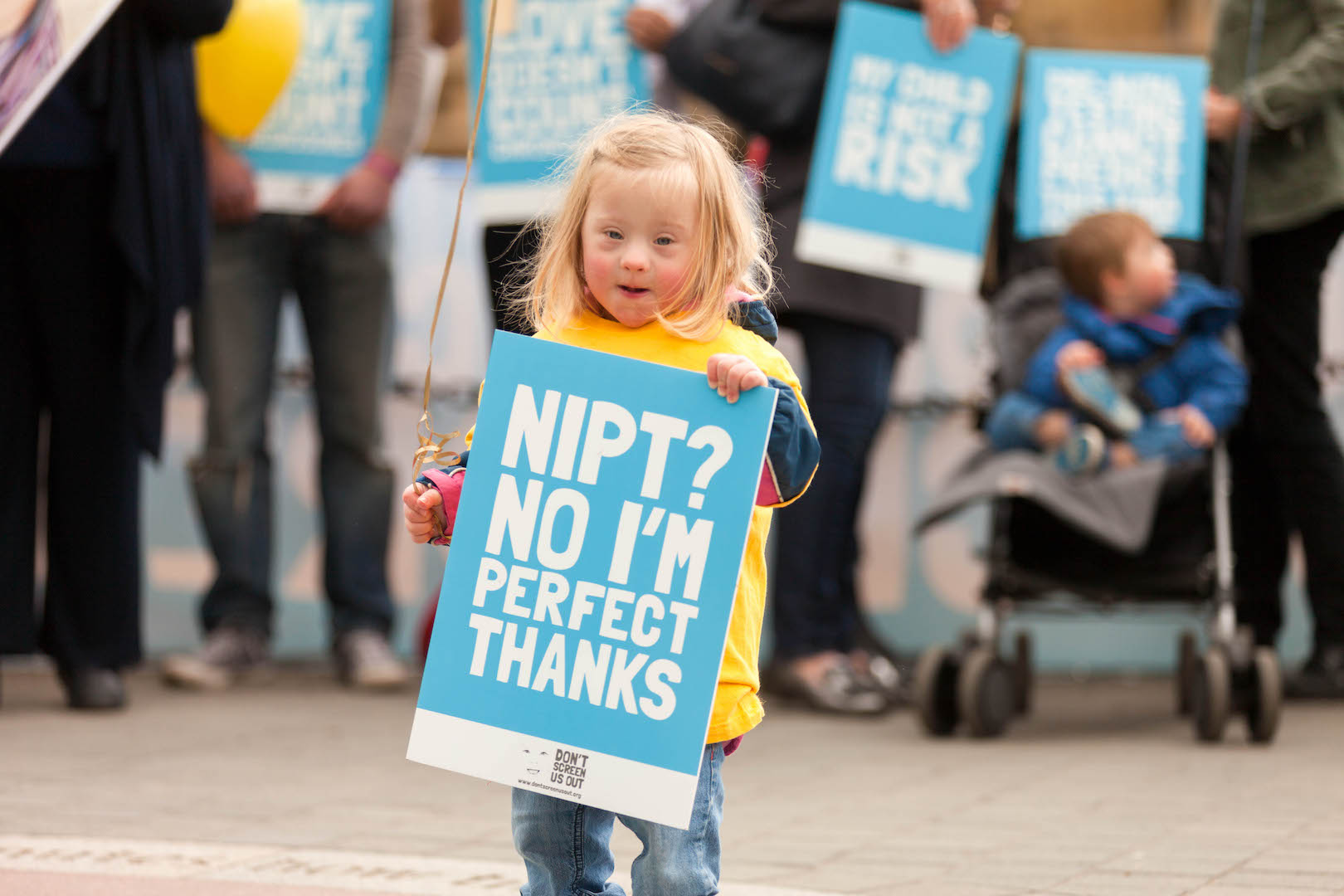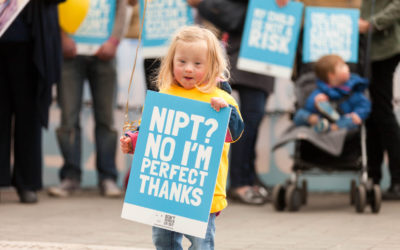Press release for immediate release
Disability campaigners back amendment to reform discriminatory disability abortion law
Disability campaigners are urging MPs to support an amendment that has been tabled by a cross-party group of MPs to the Government’s Health and Care Bill to introduce an equal time limit for disability-selective abortions.
Amendment NC52 has been selected by the speaker and will be debated on Tuesday afternoon at Report Stage of the Health and Care Bill.
Currently in England, Wales and Scotland, there is a general 24-week time limit for abortion, but if the baby has a disability, including Down’s syndrome, cleft lip and club foot, abortion is legal right up to birth.
The UN Committee on the Rights of Persons with Disabilities has consistently criticised countries that provide for abortion on the basis of disability.
The Committee on the Rights of Persons with Disabilities’ concluding observations on the initial report of the United Kingdom of Great Britain and Northern Ireland made a key recommendation that the UK change its abortion law so that it does not single out babies with disabilities. The Government has decided to ignore this recommendation.
The Disability Rights Commission (now the Equality and Human Rights Commission) has said that this aspect of the Abortion Act “is offensive to many people; it reinforces negative stereotypes of disability…[and] is incompatible with valuing disability and non-disability equally”.
The 2013 Parliamentary Inquiry into Abortion for Disability found the vast majority of those who gave evidence believed allowing abortion up to birth on the grounds of disability is discriminatory, contrary to the spirit of the Equality Act 2010 and that it affects wider public attitudes towards discrimination. The Inquiry recommended Parliament reviews the question of allowing abortion on the grounds of disability and should consider repealing section 1(1)(d) of the Abortion Act which allows for it.
A recent High Court case was brought against the Government for allowing disability discrimination in abortion by Heidi Crowter, 26, who has Down’s syndrome and Máire Lea-Wilson, whose son has Down’s syndrome. Ms Crowter has consistently described how the current law “makes me feel that my life is not as valuable as anyone else’s”, whilst Ms Lea-Wilson was “placed under intense pressure” to have an abortion after a 34-week scan revealed her son had Down’s syndrome. Ms Crowter and Ms Lea-Wilson are seeking permission for their case to be taken to the Court of Appeal.
There were 3,083 disability-selective abortions in 2020. 693 of these abortions were due to babies with Down’s syndrome, an increase of 5.64% from 656 in 2019. The actual figures are likely to be much higher – a 2013 review showed 886 fetuses were aborted for Down’s syndrome in England and Wales in 2010 but only 482 were reported in Department of Health records. The underreporting was confirmed by a 2014 Department of Health review.
Polling has shown that the majority of people in England, Wales and Scotland feel that disability should not be a grounds for abortion at all, with only one in three people thinking it is acceptable to ban abortion for gender or race but allow it for disability.
Heidi Crowter, from Coventry, who has Down’s syndrome said:
“The law says that babies shouldn’t be aborted up to birth, but if a baby is found to have Down’s syndrome, it can be aborted up until birth. This is the current law in the UK and I think it’s not fair.
People like me are considered to be ‘seriously handicapped’, but I think using that phrase for a clause in abortion law is so out of date.
The United Nations Committee on the Rights of Persons with Disabilities recently said that the United Kingdom should change its abortion law to make sure that people like me aren’t singled out because of our disabilities but the Government hasn’t changed the law.
I am asking MPs to please support this amendment. People shouldn’t be treated differently because of their disabilities, it’s downright discrimination”.
Lynn Murray, spokesperson for Don’t Screen Us Out and mother of Rachel who has Down’s syndrome, said:
“By stating that disability is grounds for termination, section 1(1)(d) of the Abortion Act, promotes inequality.
The provision in the Abortion Act harks back to a time when we thought it was better for people with disabilities not to be part of our society. We’re a far more progressive society now, we realise that diversity is healthy, and all of our laws should reflect that.
We are calling on all MPs to support this amendment on Tuesday”.
ENDS
- For more information on the Don’t Screen Us Out campaign, see our website www.dontscreenusout.org or email info@dontscreenusout.org
- For interviews, contact Don’t Screen Us Out spokesperson Lynn Murray on 0784 0966 736 or email info@dontscreenusout.org
- Heidi’s Facebook page:
- Previous news coverage featuring Heidi Crowter:
- https://www.telegraph.co.uk/news/2020/10/18/woman-downs-syndrome-says-better-dead-eyes-law-ahead-legal-challenge/
- Sky News – https://www.youtube.com/watch?v=Qz0pU7TKqb0
- https://www.dailymail.co.uk/news/article-8351603/Woman-Downs-Syndrome-launches-legal-bid-end-abortion-discrimination.html
- Victoria Derbyshire Show – https://www.youtube.com/watch?v=eeNuWj3xhbM
- Channel 5 News – https://www.youtube.com/watch?v=eeNuWj3xhbM
- https://www.theguardian.com/society/2018/dec/03/my-life-is-just-as-important-as-everybody-elses-meet-the-disability-leaders
- https://www.bbc.co.uk/news/av/45790521/the-23-year-old-busting-myths-about-down-s-syndrome
- https://www.itv.com/news/central/2019-03-21/he-makes-me-the-happiest-girl-in-the-world-twenty-three-year-old-with-downs-on-her-love-life-and-work-wouldntchangeathing-downs-syndrome-world-downs-syndrome-day/
- https://www.huffingtonpost.co.uk/entry/having-downs-syndrome-doesnt-make-me-less-of-a-person_uk
- https://www.dailymail.co.uk/video/news/video-1318649/Heidi-Crowter-s-powerful-s-Syndrome-message-Jeremy-Hunt.html
- Down’s syndrome abortion figures are expected to increase as NIPT is rolled out across hospitals on the NHS. The number of babies born with Down’s syndrome has dropped by 30% in NHS hospitals that have introduced the new test.



